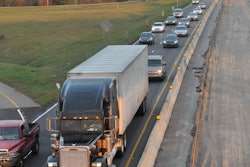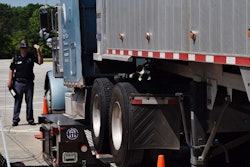The American Association of State Highway and Transportation Officials announced an approved a schedule for state Departments of Transportation to implement the use of roadside safety hardware devices (such as guardrails, crash cushions, etc.) on the National Highway System that meet new crash-testing standards.
AASHTO’s members voted in support of the schedule pursuant to updates required by the new AASHTO Manual for Assessing Safety Hardware (MASH), which presents uniform guidelines for crash-testing permanent and temporary highway safety features and recommends evaluation criteria to assess test results. An update to the manual is expected in 2016.
“The nation’s motor vehicle fleet continues to evolve and our roadside hardware must keep pace,” said Bud Wright, AASHTO executive director. “Vehicles have increased in size and light-truck bumper heights are higher. It’s important that AASHTO and the transportation safety community support the design and manufacture of roadside devices that meet the safety needs of America’s changing vehicle fleet.”
The schedule was established based on the anticipated availability of products that meet MASH criteria, including time needed to develop and test these devices. After the following dates, only safety hardware evaluated using the new edition of MASH will be allowed on the NHS for new permanent installations and full replacements:
- Dec. 31, 2017: W-beam barriers and cast-in-place concrete barriers
- June 30, 2018: W-beam terminals
- Dec. 31, 2018: cable barriers, cable barrier terminals, and crash cushions
- Dec. 31, 2019: bridge rails, transitions, all other longitudinal barriers (including portable barriers installed permanently), all other terminals, sign supports, and all other breakaway hardware
- Temporary work zone devices, including portable barriers, manufactured after Dec. 31, 2019, must have been successfully tested to MASH. Such devices manufactured on or before this date, and successfully tested to NCHRP Report 350 or the 2009 edition of MASH, may continue to be used throughout their normal service lives.
State and local transportation agencies are encouraged to upgrade existing highway safety hardware to comply with the new edition of MASH, either when it becomes damaged beyond repair or when an individual agency’s policies require an upgrade.








